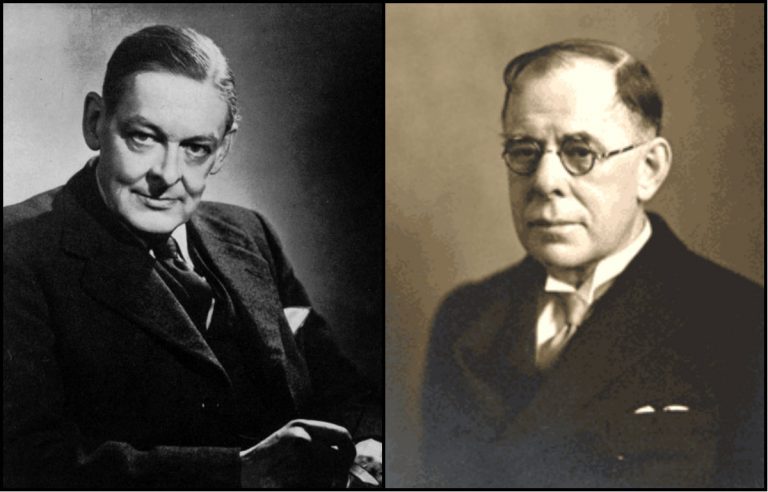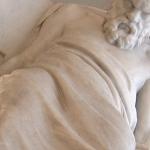 Read enough great books and you see connections. . . Plato, T.S. Eliot, and A.E. Taylor did not go to a bar together, Plato being dead for millennia before there were bars, Eliot, or Taylor, but Plato did influence both thinkers, the poet and the philosopher, and I suspect the least famous (Taylor) provided some intellectual help to the famous poet Eliot.
Read enough great books and you see connections. . . Plato, T.S. Eliot, and A.E. Taylor did not go to a bar together, Plato being dead for millennia before there were bars, Eliot, or Taylor, but Plato did influence both thinkers, the poet and the philosopher, and I suspect the least famous (Taylor) provided some intellectual help to the famous poet Eliot.
Recently at the College, we were working through “Dry Salvages” by T.S. Eliot and the (potential) connection was exciting: a great Christian philosopher and one of the greatest Christian poets sharing an alternative vision to British Christianity that was not taken, but still could be!
Jesus saved a hurting T.S. Eliot. And Eliot, the greatest poet of the twentieth century, thought Jesus could save us as well. A person can hate the conclusion, but if English is your mother tongue, then you cannot ignore Eliot or his ideas. He shaped the twentieth-century imagination through his poetry and use of language.
To ignore Eliot’s religion is to misunderstand his poetry and to misunderstand his poetry is to misunderstand our own minds. He wanted to turn our minds and our imaginations Godward. As part of a Christian artistic renaissance in Britain, Eliot can be misunderstood. His faith is not so much like that of his equally famous contemporaries, the Inklings. T.S. Eliot and C.S. Lewis, for example, were very different in terms of literary taste and how they expressed their Faith.
During a discussion session on the text of Four Quartets[1], I realized what may be an overlooked influence on Eliot’s religious work: the philosophy and arguments of classical scholar A.E. Taylor.[2]
While Eliot may not directly quote Taylor, the poet assumes a picture of the development of classical philosophy championed by the philosopher. Taylor had also described the work of the poet in a famous series of lectures and that “job description” resonates with the meaning and methods in Eliot’s Four Quartets. Taylor was an apologist[3], scholar, and Christian: Though he is not now on best seller lists like Lewis and Tolkien, his methods and style may live on in T.S. Eliot.
Read the rest here and learn how Britain might have chosen . . . wisely.
_____________________
1] I am thankful to Dr. Tim Bartel for leading the college seminar at the College at The Saint Constantine School that inspired this thought.
[2] Taylor has influenced my entire career. Letters from Taylor to a father regarding the need for a classical education for his son hang on the wall of my office at The Saint Constantine School.
———————————————-
*I begin an informal summer reading of Republic using Scott/Sterling (a new translation for me). Part 1. Part 2. Part 3. Part 4. Part 5. Part 6. Part 7. Part 8. Part 9. Part 10. Part 11. Part 12. Part 13. Part 14. Part 15. Part 16. Part 17. Part 18. Part 19. Part 20. Part 21. Part 22. Part 23. Part 24. Part 25. Part 26. Part 27. Part 28. Part 29. Part 30. Part 31. Part 32. Part 33. Part 34. Part 35. Part 36. Part 37. Part 38. Part 39. Part 40. Part 41. Part 42. Part 43. Part 44. Part 45. Part 45.5. Part 46. Part 47. Part 48. Part 49. Part 50. Part 51. Part 52. Part 52.5. Part 53.











